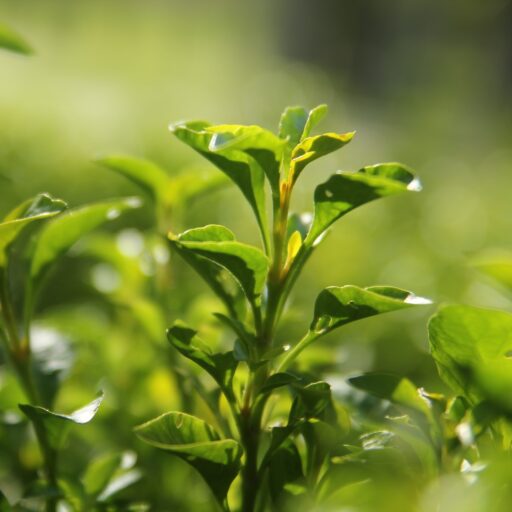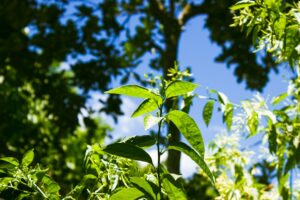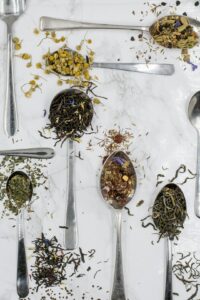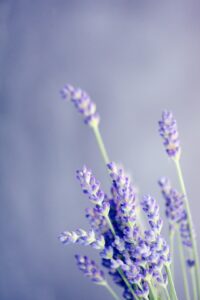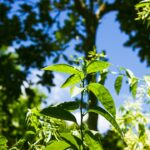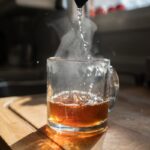Support our educational content for free when you purchase through links on our site. Learn more
Can I make tea from fresh herbs? [2023]
Are you a tea lover who enjoys experimenting with different flavors? If so, you might be wondering if you can make tea from fresh herbs. The answer is a resounding yes! In fact, using fresh herbs to brew tea can elevate your tea-drinking experience to a whole new level. In this article, we'll explore the world of fresh herbal tea and provide you with everything you need to know to brew your own delicious and aromatic concoctions. So grab your teapot and let's dive in!
Table of Contents
- What are herbal teas?
- List of herbs for tea
- Step by Step guide
- Tips
- How to dry fresh herbs
- Equipment
- Related recipes
- Frequently Asked Questions
- Quick Tips and Facts
- Useful Links
- Reference Links
What are herbal teas?
Herbal teas, also known as tisanes, are beverages made from the infusion or decoction of herbs, spices, flowers, or other plant materials. Unlike true tea, which is derived from the Camellia sinensis plant, herbal teas are caffeine-free and can offer a wide range of flavors and health benefits. They have been consumed for centuries for their soothing and therapeutic properties.
List of herbs for tea
When it comes to making tea from fresh herbs, the possibilities are endless. Here is a list of some popular herbs you can use to brew your own herbal tea:
- Mint: Known for its refreshing and cooling properties, mint tea is a classic herbal beverage loved by many. It can help soothe digestion and relieve headaches.
- Lemon Balm: This citrusy herb produces a fragrant tea that can promote relaxation and reduce anxiety.
- Chamomile: Chamomile tea is well-known for its calming effects and is commonly enjoyed before bedtime.
- Lavender: With its delicate floral aroma, lavender tea can help reduce stress and promote relaxation.
- Rosemary: Known for its aromatic, pine-like scent, rosemary tea can boost memory and improve digestion.
- Basil: This herb adds a unique and savory flavor to tea and can help alleviate stress and anxiety.
- Lemon Verbena: Lemon verbena tea is prized for its zesty lemon flavor and refreshing qualities.
- Thyme: Thyme tea has a subtle earthy flavor and is often used to support respiratory health.
This is just a small selection of the many herbs you can use to create your own fresh herbal tea blends. Feel free to experiment with different combinations to find the flavors that suit your taste buds.
Step by Step Guide
Now that you have an idea of the herbs you can use, let's dive into the step-by-step process of making fresh herbal tea:
- Harvest: Begin by harvesting fresh herbs from your garden or purchasing them from a local farmer's market or grocery store. Choose herbs that are vibrant, aromatic, and free from any signs of wilting or discoloration.
- Rinse: Gently rinse the herbs under cold water to remove any dirt or debris.
- Bruise: To release the essential oils and flavors, gently bruise the herbs by lightly crushing them or rubbing them between your fingers.
- Infuse: Place the bruised herbs in a teapot or cup and pour boiling water over them. Allow the tea to steep for about 5-10 minutes, or longer if desired, to extract the flavors and beneficial properties.
- Strain: Once the tea has steeped, strain out the herbs using a fine-mesh sieve or tea strainer to remove any solids.
- Enjoy: Pour the freshly brewed herbal tea into your favorite mug and savor the delightful flavors and aromas.
Tips for making fresh herbal tea
- Utilize variety: Mix and match different herbs to create unique flavor profiles. Don't be afraid to experiment and find combinations that appeal to your taste buds.
- Balance flavors: Consider adding a touch of sweetness with honey or a squeeze of lemon to enhance the taste of your herbal tea.
- Adjust steeping time: Steep herbs for longer to extract stronger flavors or for a shorter time if you prefer a milder taste.
- Temperature matters: Different herbs may require varying water temperatures for optimal infusion. As a general rule, use boiling water for tougher herbs like rosemary or thyme, and slightly cooler water (around 95°C/200°F) for more delicate herbs like mint or chamomile.
- Fresh is best: While dried herbs can be used, fresh herbs generally yield a more vibrant and aromatic tea. If using dried herbs, adjust the amount accordingly, as they tend to be more concentrated in flavor.
How to dry fresh herbs
If you have an abundance of fresh herbs and want to preserve them for future use, drying them is a great option. Here's a simple process to dry fresh herbs:
- Harvest: Pick the herbs early in the day after the morning dew has dried. Choose healthy and unblemished leaves.
- Clean: Gently wash the herbs under cold water to remove any dirt. Pat them dry with a clean kitchen towel or paper towel.
- Air dry: Bundle the herbs together using twine or a rubber band and hang them upside down in a warm, well-ventilated area away from direct sunlight. This allows the herbs to dry naturally.
- Store: Once the herbs are completely dry and crumbly to the touch, remove the leaves from the stems and store them in an airtight container. Keep the container in a cool, dark place to maintain the flavor and aroma.
Dried herbs can be used to make tea in the same way as fresh herbs. Simply steep the dried herbs in hot water and enjoy a warm cup of herbal goodness.
Equipment for making fresh herbal tea
Making fresh herbal tea doesn't require any fancy equipment, but having the right tools can enhance your tea-making experience. Here are a few items you might find useful:
- Teapot: A teapot with a built-in infuser allows you to steep the herbs and easily strain them when pouring the tea.
- Mason jars: Mason jars are great for storing dried herbs, allowing you to preserve their flavors and aromas.
- Tea strainer: A tea strainer or infuser is handy for steeping loose herbs without them floating freely in your cup.
- Tea kettle: A kettle that heats water to a specific temperature can ensure optimal brewing conditions for different herbs.
While not necessary, these tools can enhance the overall tea-making process and make it more convenient for you to enjoy your fresh herbal concoctions.
Related recipes
Looking to explore different flavor profiles and expand your herbal tea repertoire? Here are a few recipes to get you started:
- Minty Refresh: Combine fresh mint leaves, a squeeze of lemon, and a touch of honey for a revitalizing and invigorating tea.
- Soothing Chamomile: Steep chamomile flowers in hot water with a dash of vanilla extract and a drizzle of honey for a calming and comforting beverage.
- Citrus Burst: Mix lemon verbena leaves, orange zest, and a sprig of rosemary for a vibrant and citrusy tea.
- Herbal Chai: Create your own herbal chai blend using spices like cinnamon, ginger, cardamom, and cloves. Add your choice of herbal base, such as ginger or mint, for a unique twist on the classic chai tea.
Feel free to modify these recipes to suit your taste preferences and experiment with different ingredients. Let your creativity run wild!
Frequently Asked Questions
Do herbs need to be dried for tea?
No, herbs do not necessarily need to be dried for tea. Fresh herbs can be used directly to brew tea, providing a vibrant and more aromatic experience. Dried herbs can also be used and offer a more concentrated flavor. It ultimately comes down to personal preference and the availability of fresh or dried herbs.
Is it better to make tea with fresh or dried herbs?
Both fresh and dried herbs have their own advantages when it comes to making tea. Fresh herbs provide a more vibrant and aromatic flavor, while dried herbs offer a more concentrated taste. If you have access to fresh herbs, we recommend using them to enjoy the full fragrance of the herbs. However, if fresh herbs are not readily available, dried herbs can still produce a delightful cup of tea.
How long to boil fresh herbs for tea?
Boiling fresh herbs for an extended period can lead to some loss of flavor and aroma. It's best to avoid boiling fresh herbs for too long, as it may result in a bitter taste. Instead, steep the herbs in hot water for about 5-10 minutes to extract their flavors and beneficial properties. Adjust the steeping time based on your personal preference and the desired strength of the tea.
Quick Tips and Facts
- Survey says: "I love brewing tea with fresh herbs. It elevates the taste and aroma to a whole new level!" – Tea enthusiast on Reddit.
- Did you know?: The tradition of using herbs for tea dates back thousands of years and is found in many ancient cultures around the world.
- Fun fact: Herbal teas are not just for drinking. You can use them in culinary recipes, as infused syrups, or even in homemade cocktails for added flavor and complexity.
Useful Links
Reference Links
- The Spruce Eats – How to Make Herbal Tea from Fresh Herbs
- Healthline – 10 Healthy Herbal Teas You Should Try
- MindBodyGreen – The Health Benefits Of Herbal Tea
In conclusion, there is nothing quite like the experience of brewing tea from fresh herbs. From the vibrant flavors to the aromatic aromas, fresh herbal tea brings a whole new dimension to your tea-drinking ritual. Whether you choose to use mint, chamomile, lavender, or any other herb, the possibilities are endless. So go ahead, explore, and create your very own blends of fresh herbal teas. Your taste buds will thank you!
Happy tea-making,
The Growing Teas™ Team
